Gained in Translation: 5 Books that Read Just as Beautifully in English
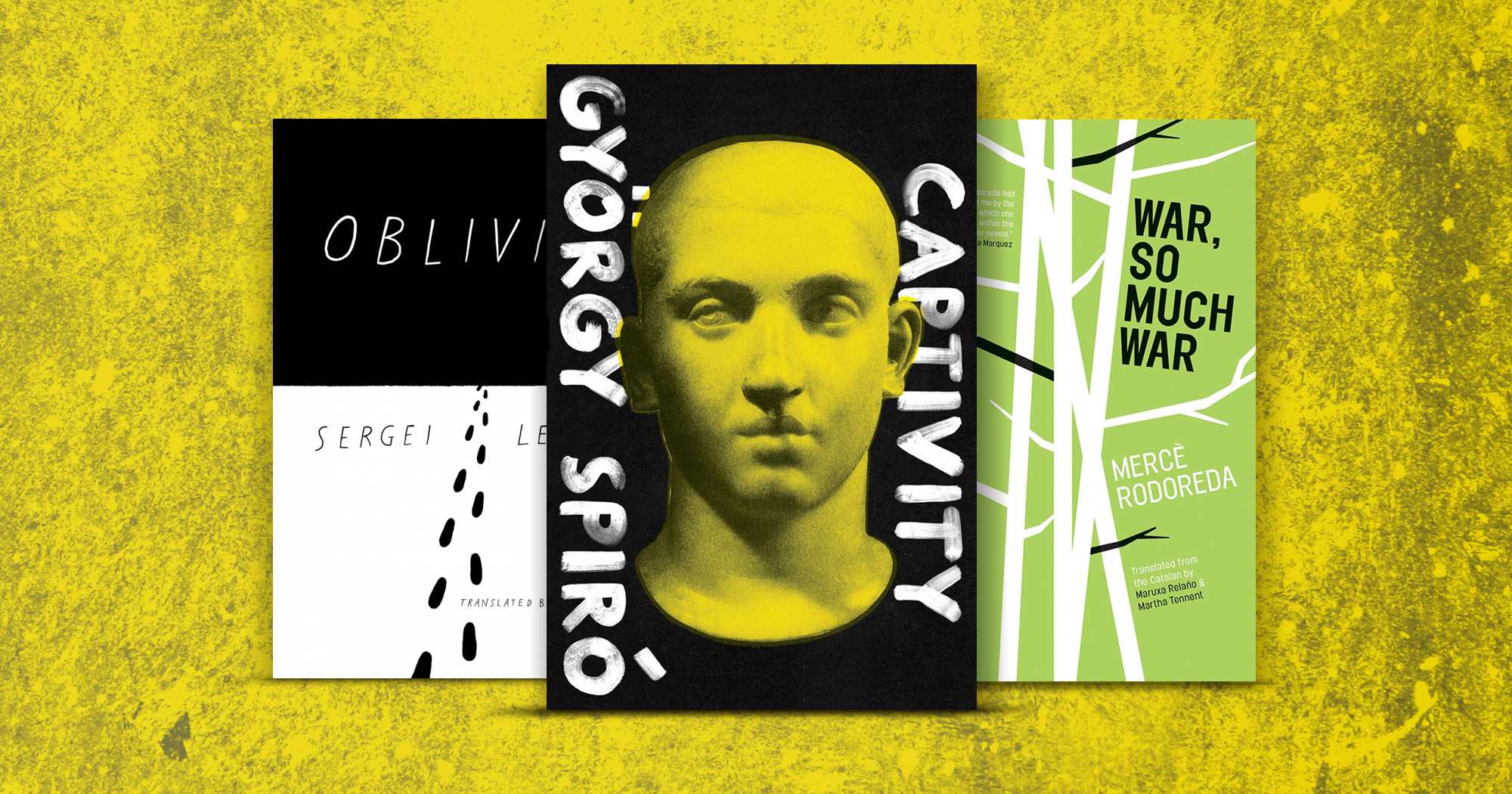
In an increasingly global marketplace of ideas, it’s little wonder that literary translations represent a growing segment of book sales. But it’s the things we love the most about a book—the musicality, the imagery, the language—that can make translating a book so difficult. It is tricky to get nuance and cultural references across language barriers. The five translations listed here, featured in our Winter 2016 edition, manage to pull it off and are just as beautiful in English as they are in their original languages.
A General Theory of Oblivion
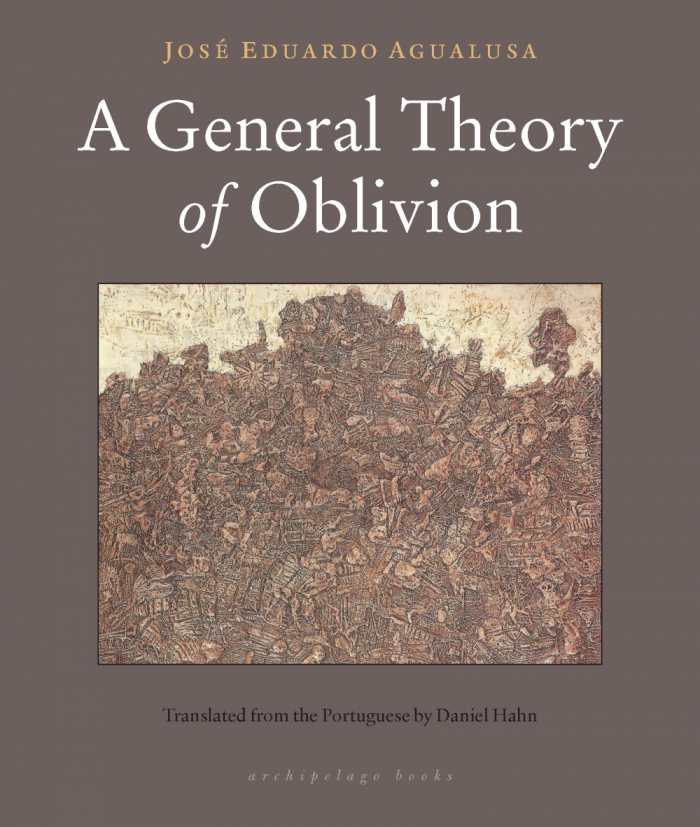
José Eduardo Agualusa
Daniel Hahn, translator
Archipelago Books
Softcover $18.00 (244pp)
978-0-914671-31-2
Buy: Local Bookstore (Bookshop), Amazon
Survival and human resourcefulness are explored in this entertaining cross section of life in Angola.
José Eduardo Agualusa presents a novel that turns self-preservation and fear into a prismatic exploration of survival. A General Theory of Oblivion—translated from the Portuguese by Daniel Hahn—features Ludo, a Portuguese exile who secludes herself in her missing brother-in-law and sister’s apartment on the eve of Angola’s independence. Building a wall to block the doorway, she begins an eccentric life of deprivation and diaristic creation that spans nearly thirty years. Brief tales follow a mercenary, a composer, an orphan, a businessman, and other bold characters to create an ample portrait of human resourcefulness.
A writer and journalist whose awards include the Independent Foreign Fiction prize, Agualusa rounds the edges of harsh conflicts in a plot that relishes the absurd. Titled chapters, several of which stand alone as flash fiction, alternate between Ludo’s observations from her terrace, fragments from her diary, and the stories of neighboring passersby, many of whom are linked by the improbable journey of a carrier pigeon. The nonlinear arrangement cleverly allows new situations to inform past mysteries, while civil war and its aftermath unfold around Ludo.
One memorable vignette depicts the good fortune that befalls a singer with a dancing pygmy hippo. Others reveal a man rumored to have been swallowed by the earth, a botched assassination attempt, and the fate of a man who feigns insanity to escape notice. A cast of determined hustlers and individuals seems emblematic of a country in upheaval. Opportunism, ingenuity, corruption, spontaneous kindness, hints of witchery, faith, animals, fashion-conscious men, strange encounters, accidents, the rural and modern—multiple elements meld in this entertaining cross section of Luanda.
Backstory for Ludo’s isolation, which spells out a life-altering incident, seems less complete and arrives almost as a side note. Viewed from a broader perspective, her story is an aching reminder that memories may be pushed aside but can never be entirely rewritten. They rise to the surface with quiet forcefulness, refuse to fall into “oblivion,” and inform every gesture and word—a deceptively simple concept with fascinating ramifications.
KAREN RIGBY (November 27, 2015)
Captivity
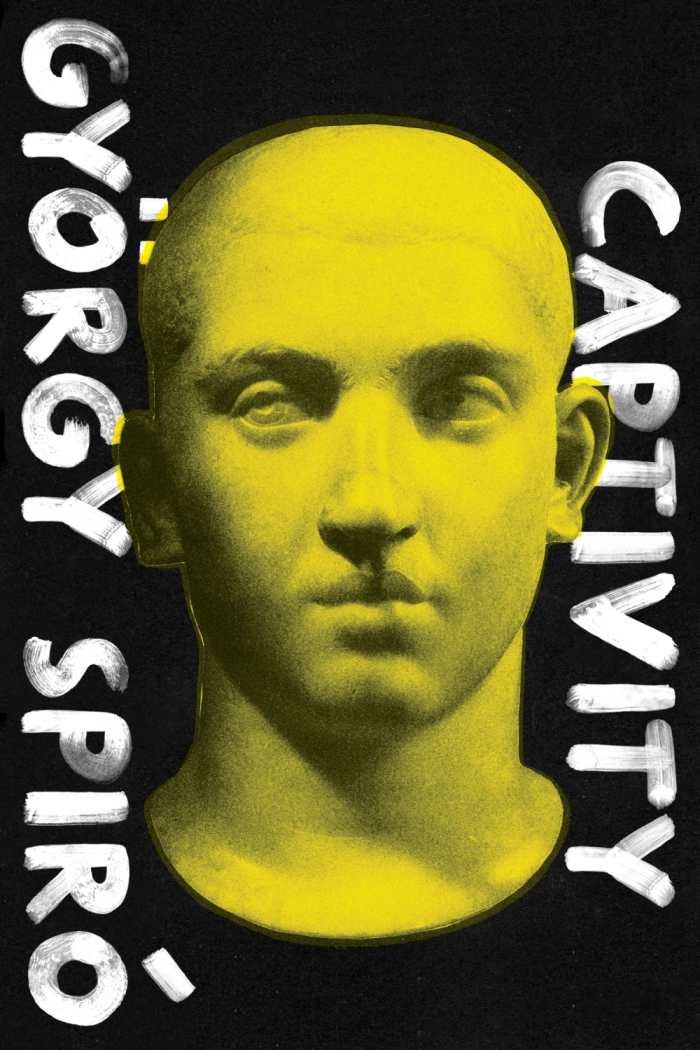
György Spiró
Tim Wilkinson, translator
Restless Books
Hardcover $29.99 (832pp)
978-1-63206-049-5
Buy: Local Bookstore (Bookshop), Amazon
Captivity is an exciting and engrossing historical epic that richly rewards the reader.
Clocking in at over eight hundred pages, Captivity is a sprawling, epic bildungsroman that immerses the reader in a richly detailed world of the past. In the waning days of the emperor Tiberius, with the Eastern Mediterranean world in flux, a callow young man grows and matures, learning to see both what is before his eyes and what he can infer through deduction and experience.
Uri, a young man in Rome’s impoverished community of Jewish expatriates, is surprised and shocked to be named as one of the delegates assigned to carry the community’s annual temple offering to Jerusalem. As part of this delegation, he is expelled from the familiar Rome of his childhood and cast into a churning cauldron of competing, jostling cultures.
Other authors have explored this time and place, of course, but unlike many of them, Spiro does not focus on the ministry and crucifixion of a certain Galilean carpenter or the machinations of the Imperial court. Uri is from first to last a man of his time, place, and culture: a Roman Jew, an outsider everywhere. His travels bring him in contact with individuals whose names appear in Christian scriptures, but his view of them is frequently very different from their portrayal in the New Testament. His journey takes him from dangerously political Rome to religion-wracked Judeia and cosmopolitan Alexandria, where the intellectual storehouse of the great library coexists uneasily with epicurean delights, hedonistic abandon, sharp business dealing, and the ever-present threats of political manipulation, personal deceit, and ethnic quarreling.
Opening the book is like stepping into a fabulous bazaar in a strange land, where every turn might lead to an unfamiliar pleasure or a deadly ambush. Uri’s story is both intensely personal and deeply universal. His delights and disappointments are achingly, universally human. At the same time, his experiences foreshadow the wrenching changes that the Jewish culture itself will experience in the catastrophic diaspora of the coming years.
Captivity is an exciting and engrossing epic that richly rewards the reader. Winner of the Aegon literary award in Hungary, it deserves equal success in the English-speaking world.
BRADLEY A. SCOTT (November 12, 2015)
Oblivion
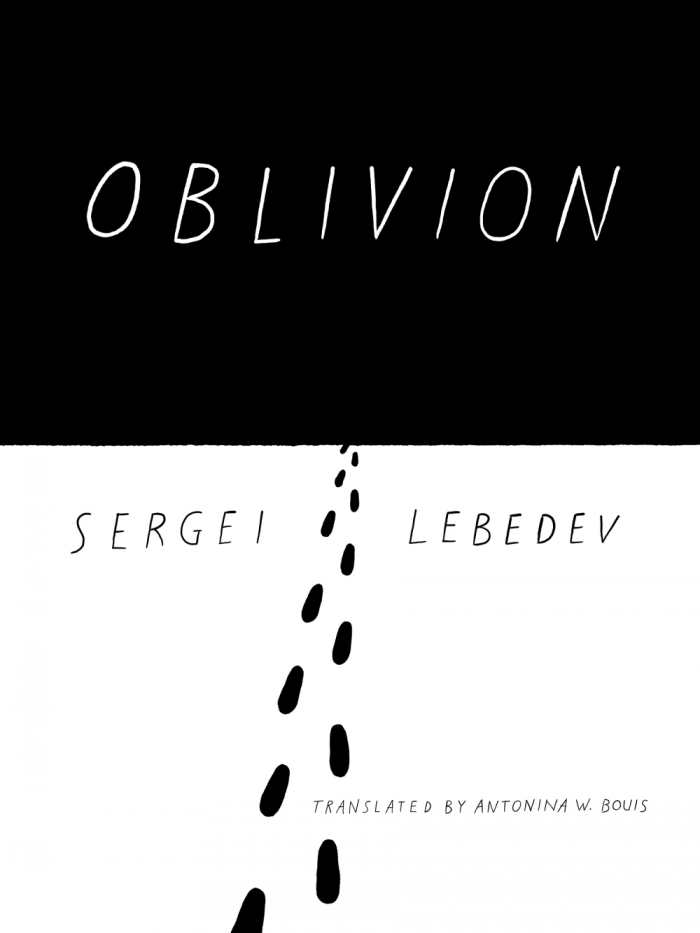
Sergei Lebedev
Antonina W. Bouis, translator
New Vessel Press
Softcover $15.95 (297pp)
978-1-939931-25-2
Buy: Local Bookstore (Bookshop), Amazon
With its vibrant, sophisticated prose style, this is a necessary historical novel in Gulag literature.
Sergei Lebedev’s Oblivion, translated by Antonina W. Bouis, creates a searing historical narrative that begins in a dacha and ends in an icy sinkhole near the Arctic Circle. Stalinist Russia and the horrors of the Gulag agency’s forced labor camps are the focus of Lebedev’s brutal and stylish debut novel. Combining the structure of a detective novel with a vibrant, sophisticated prose style, Oblivion is one man’s journey to confront the chilling truth buried deep in Russia’s collective memory.
The unnamed protagonist’s story, told in first person, begins with his birth. His childhood is spent under the influence of his family’s neighbor, a blind man called Grandfather II. Grandfather II’s past is unknown, and the boy finds it difficult to love him due to an eerie feeling he senses when around him. When the boy is hospitalized following a dog attack, the doctors discover he needs a blood transfusion in order to stay alive; Grandfather II volunteers. The boy survives, the old man doesn’t. Years later, filled with anxiety about the blood of this man that courses through him, the adult narrator, who has traveled extensively as a geologist, embarks on a journey to find the truth about who this man was.
Trekking from south to north, the narrator becomes a witness to the grim realities of Stalinist Russia. Grandfather II is a symbol, a representative of Russia’s shameful legacy—genocide from the forced labor camps. Bouis’s translation loses none of Lebedev’s descriptive powers in this richly detailed voyage. In these details, Lebedev confronts the atrocities of the gulags through memory and place. The climax of the narrator’s journey is horrific as he comes to terms with Grandfather II’s murderous history.
Oblivion is compelling as a novel, but factor in the historical importance of this epoch in Russia’s past and it becomes a necessary novel of Gulag literature. Stories can be rewritten, but first they must be written. Russia’s collective memory can no longer deny the past, and, with the publication of Oblivion, it takes a vital step towards its ownership.
MONICA CARTER (November 27, 2015)
War, So Much War
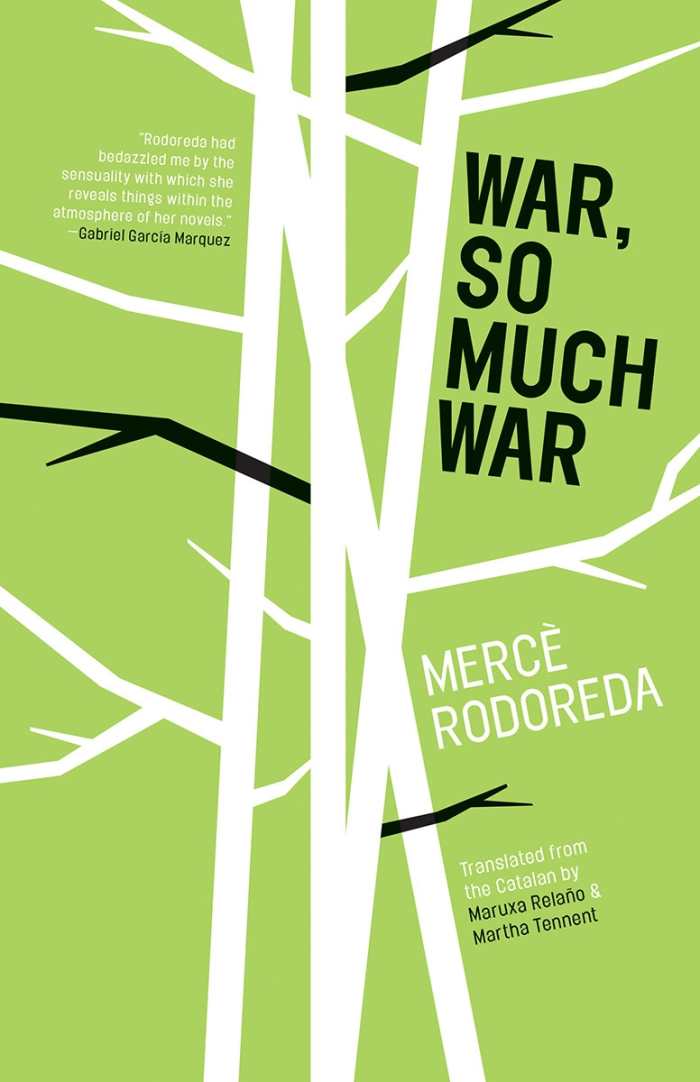
Mercè Rodoreda
Maruxa Relaño, translator
Martha Tennent, translator
Open Letter
Softcover $13.95 (185pp)
978-1-940953-22-9
Buy: Local Bookstore (Bookshop), Amazon
Rodoreda’s final work emphasizes imagery and the language of her characters with sincere and beautiful language of her own.
Mercè Rodoreda’s novel War, So Much War, translated here from the Catalan by Maruxa Relano and Martha Tennent, was her last published work. In its vignette-like chapters, a simultaneous beauty and horror unwraps itself in brief, astonishing ways. The subject matter—ostensibly war—is delivered quite differently than is first supposed. The urge of war becomes, to Rodoreda’s characters, just that: an unexplained urge that is never fulfilled. These and other contradictions allow for undercurrents—dense symbolism, a surrealist, almost magical tone—to guide and haunt the narrative.
The first-person narration is used strongly, creating a subsequent emphasis on language and image throughout. In many places, protagonist Adrià’s inner dialogue trails off into moments of such sincere and beautiful language that it leaves trails, bouncing off of itself in an effortless kind of stream of consciousness that seems to be uniquely Rodoreda’s. These trails and surprising revelations are, foremost, an honest reflection of the mind and its jumps—its associations and triggers as they relate to violence and the terrible shadow it leaves.
War is rarely shown or even given context for in War, So Much War. While this certainly is intentional, the aftermath of war—its loose ends and dense uncertainties—certainly do follow. Death, in many ways, becomes a fantastic mirror into which the narrator glimpses pieces of a reality that is, at best, bent and awry. In one scene, as the boy hides from three men, he overhears their opinions of the war: “The men said that the war might last a lot longer, maybe a hundred years. While there’s cannon fodder, there will be war. A man who looked a bit like my father … said that it was just the opposite.” It seems, as per these loud hyperboles and contradictions, that war means almost nothing in this novel. Connect this with an epigram by D. H. Lawrence, who seems to warn us before the novel’s opening of “a great ravel of flights from nothing to nothing.” This is what makes Rodoreda and this novel worth reading: she takes us into the territory of nothing and leaves nothing behind.
KENNY JAKUBAS (November 27, 2015)
The Balloon Containing the Water Containing the Narrative Begins Leaking
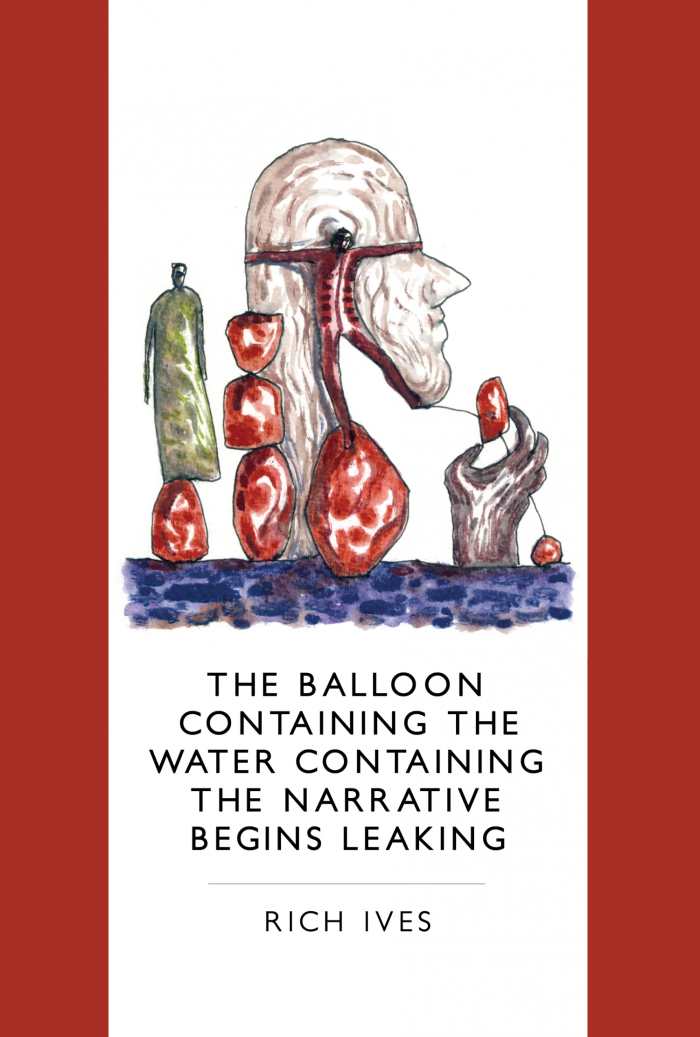
Rich Ives
What Books Press
Softcover $15.00 (153pp)
978-0-9962276-0-5
Buy: Local Bookstore (Bookshop), Amazon
Innovative writer Rich Ives has filled this, his newest book, with small, often tiny stories not unlike fables or dreams. Surreal happenings are recorded in spare prose that creates mental images akin to a Dalí painting: a man stares at a camera set up on a tripod in the street, waiting, not noticing that the camera is not facing him and that there is no one there to trigger the shutter; a photographer moves a photo of a dead man into the light and photographs it while sounds of a neighbor pounding a nail into the wall and the rumbling of a refrigerator pierce the silence; a man declares that he has nothing to live for, and another responds, “Don’t be maudlin. You have just as much to live for now as you’ve ever had.” “That’s the problem,” the first man replies. “Now I know how little it’s always been.”
Stunningly multisensory and intense, Ives’ introspective and intimate portraits of moments or days in the lives of offbeat, eccentric people are written in strong, lucid prose that infuses everything, even the landscape, with emotion. “This land feeds its gradual loss into the cold bright water,” he writes in “Near Torshavn, Faröe Islands.” “Summer leaves as though it were one of us, awash with emotion. The long darkness waits, despair holding off the coast in quiet boats.”
Ives, also an artist and musician, has had his work published in eleven different countries and has received several prestigious grants and awards for his work in poetry, fiction, editing, publishing, translation, and photography.
KRISTINE MORRIS (November 27, 2015)

Hannah Hohman is an editorial assistant at Foreword Reviews. You can contact her at hannah@forewordreviews.com.
Hannah Hohman
